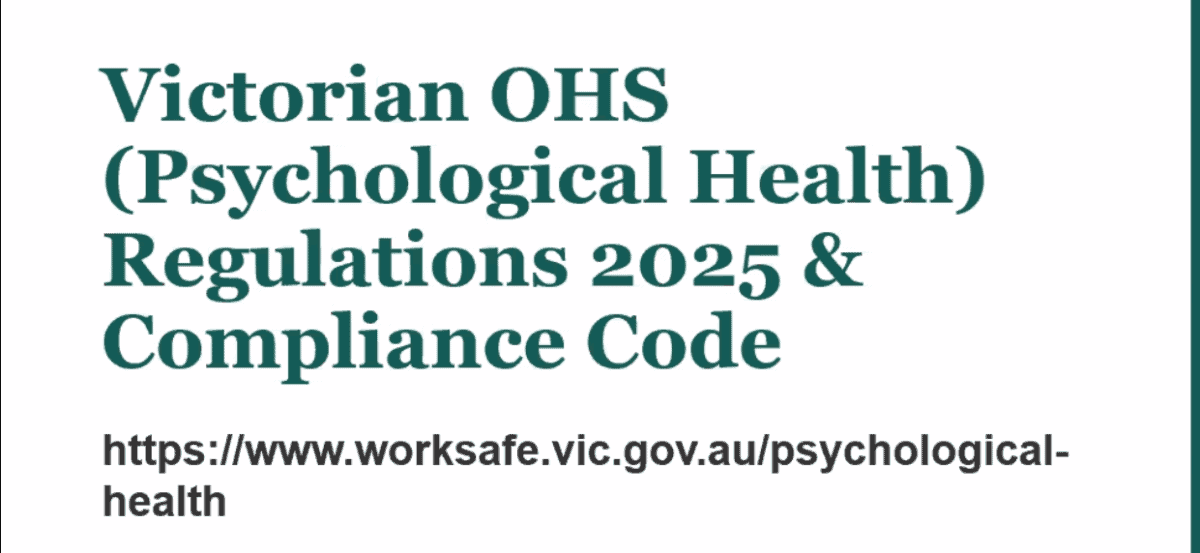Niru Tyagi recently wrote on LinkedIn about Denmark’s regulatory approach to work-related psychosocial hazards, comparing it the current Australian approach, framing Denmark as creating an industrial obligation. It is a perceptive comparison but downplays the significance in Australia of the criterion of reasonably practicable.
Category: law
Are emotion and anger also types of energy?
One of my previous employers was highly committed to occupational health and safety (OHS), but always gave the program, the schedule or utilisation a higher priority. Whether that was a justifiable compliance level was of little concern, as long as the auditors recertified the OHS management systems. The company realised their approach to OHS was not working, so it turned its focus on “critical risks”, which were, bluntly, anything that would kill you. But such was the strength of the culture that even this focus on critical risks failed to cut through and give OHS the respect that it legislatively deserves.
Matthew Hallowell‘s latest book, “Energy-Based Safety – A Scientific Approach to Preventing Serious Injuries and Fatalities (SIFs)“, discusses this focus on critical risks.
Lazy Senators Are Not Doing Their Job
Safe Work Australia’s (SWA) executives are obliged to attend meetings of Senate Estimates committees to answer questions from Senators about their portfolios. Sometimes these can be tense and robust. Sometimes these appear to be a waste of time.
OHS and Politics
In support of Australia’s Safe Work Month, I have recorded a 12-minute opinion piece on how Australian politics since 2010 has affected the perception and development of occupational health and safety, based on past SafetyAtWorkBlog articles.
It is an interesting opportunity to reflect on the decisions and actions of influential individuals like Julia Gillard, Kristina Keneally, Jeff Lawrence, and David Gregory.
Workplace safety reform is happening but you probably won’t hear about it in the headlines
Occupational health and safety (OHS) can feel like a humdrum career when working in a low-risk, well-managed organisation. But the wheels of change roll on. Here’s a quick sample of some of that activity over the last week or so that you are unlikely to see elsewhere.
Culture is the New Compliance in Victoria’s Psychological Health Code
The most significant challenges for employers in Victoria’s new OHS (Psychological Health) Regulations, supported by a new Compliance Code, are likely to be fostering a strong workplace safety culture. Occupational health and safety (OHS) advocates have been emphasising the importance of culture for several decades now (Sociologists examined it decades before). It appears that we will be hearing a great deal more about culture for some time to come, but what is expected of employers?
Polishing What Exists: Making Sense of the New Psych Safety Code
Prominent occupational health and safety (OHS) lawyers Dale McQualter and Catherine Dunlop have just concluded the first of two online seminars about Victoria’s new psychological/psychosocial regulations and compliance code. Many employers will have a lot of work to do to comply, but the overall sense was one of reassurance.







